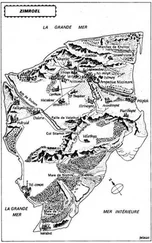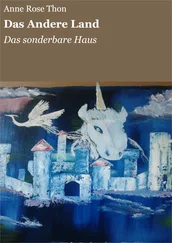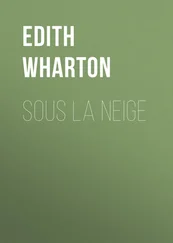Anne Wharton - In Château Land
Здесь есть возможность читать онлайн «Anne Wharton - In Château Land» — ознакомительный отрывок электронной книги совершенно бесплатно, а после прочтения отрывка купить полную версию. В некоторых случаях можно слушать аудио, скачать через торрент в формате fb2 и присутствует краткое содержание. Жанр: Путешествия и география, История, foreign_edu, foreign_antique, foreign_prose, на английском языке. Описание произведения, (предисловие) а так же отзывы посетителей доступны на портале библиотеки ЛибКат.
- Название:In Château Land
- Автор:
- Жанр:
- Год:неизвестен
- ISBN:нет данных
- Рейтинг книги:5 / 5. Голосов: 1
-
Избранное:Добавить в избранное
- Отзывы:
-
Ваша оценка:
- 100
- 1
- 2
- 3
- 4
- 5
In Château Land: краткое содержание, описание и аннотация
Предлагаем к чтению аннотацию, описание, краткое содержание или предисловие (зависит от того, что написал сам автор книги «In Château Land»). Если вы не нашли необходимую информацию о книге — напишите в комментариях, мы постараемся отыскать её.
In Château Land — читать онлайн ознакомительный отрывок
Ниже представлен текст книги, разбитый по страницам. Система сохранения места последней прочитанной страницы, позволяет с удобством читать онлайн бесплатно книгу «In Château Land», без необходимости каждый раз заново искать на чём Вы остановились. Поставьте закладку, и сможете в любой момент перейти на страницу, на которой закончили чтение.
Интервал:
Закладка:
"We have not seen him for three days until to-day," said the garçon who waited on us at the terrace café of the hotel this morning, with a fond glance toward the snowy crest of Mont Blanc rising above enveloping clouds. It would not have occurred to us to call this exquisite pearl and rose peak him , as did the garçon , who was proud of his English, and much surer of his genders than we ever hope to be in his language, or any other save our own; but we were ready to echo his lament after a day of clouds and rain. To be in these picturesque old towns upon the shores of the Lake of Geneva, and not to see Mont Blanc by sunlight, moonlight, and starlight is a grievance not lightly to be borne; but when a glory of sunshine dispelled the clouds and Mont Blanc threw its misty veil to the winds and stood forth beautiful as a bride, in shining white touched with palest pink, we could only, like the woman of the Scriptures, forget our sorrows for joy that such a day was born to the world.
Days like this are rare in the Swiss autumn, and with jealous care we planned its hours, carefully balancing the claims of Vevey, Yvoire, picturesque as an Italian hillside town, Ferney, and Coppet. This last drew us irresistibly by its associations with Madame de Staël and her brilliant entourage, and we decided that this day of days should be dedicated to a tour along the Côte Suisse of the lake, stopping at Nyon for a glance at its sixteenth century château and returning in time to spend a long afternoon at Coppet. The only drawback to this delightful plan was that this is Wednesday, and according to the friendly little guidebook that informs sojourners in Geneva how to make the best of their days, Thursday is the day that the Château de Staël is open to visitors. Learning, however, that the d'Haussonvilles were not at present in residence, we concluded to take our courage, and some silver, in our hands, trusting to its seductive influence upon the caretaker. After a short stroll through the quaint old town of Coppet we ascended the steep hill that leads to the Château de Staël. As we drew near the entrance gate, Walter, manlike, retired to the rear of the procession, saying that he would leave all preliminaries to the womenfolk, as they always knew what to say and generally managed to get what they wanted.
Fortune favored us. We noticed several persons were grouped together in the courtyard, and pushing open the gate, which was not locked, Lydia, who if gentle of mien is bold of heart, inquired in her most charmingly hesitating manner and in her Sunday best French whether we should be permitted to enter. Upon this a man separated himself from the group and approaching us asked if we very much wished to see the château, for if we did he was about to conduct some friends through the premises and would be pleased to include us in the party.
"When the French wish to be polite how gracefully they accord a favor!" exclaimed Lydia, turning to Walter, the joy of conquest shining in her blue eyes.
"Yes, and I kept out of it for fear of spoiling sport. Any caretaker who could withstand the combined charms of you three must be valiant indeed! I noticed that Zelphine put Miss Cassandra in the forefront of the battle; she is always a winner even if she isn't up to the language, and you did the talking. Zelphine certainly knows how to marshal her forces!"
We all laughed heartily over Walter's effort to make a virtue of his own masterly inactivity, and Miss Cassandra asked him if he had ever applied for a diplomatic mission, as we gaily entered the spacious courtyard.
We noticed, as we passed on toward the château, the old tower of the archives, which doubtless contains human documents as interesting as those published by Count Othenin d'Haussonville about his pretty great-grandmother when she was jeune fille très coquette , with numerous lovers at her feet. Behind the close-barred door of the tower the love letters of Edward Gibbon to the village belle were preserved, among them that cold and cruel epistle in which for prudential reasons he renounced the love of Mademoiselle Curchod, whom he would "always remember as the most worthy, the most charming of her sex."
Count d'Haussonville, who now owns Coppet, our guide informed us, is not the grandson of Madame de Staël, as Lydia and I had thought, but her great-grandson. Albertine de Staël married Victor, Duc de Broglie, and their daughter became the wife of Count Othenin d'Haussonville, to whom we are indebted for the story of the early love affair of his ancestress with the historian of the Roman Empire. The sympathies of the reader of this touching pastoral are naturally with the pretty Swiss girl, who seems to have been sincerely attached to her recreant lover, although she had sufficient pride to conceal her emotions. If Edward Gibbon found excuse for himself in the reported tranquillity and gayety of Mademoiselle Curchod, we, for our part, are glad that she did not wear her heart upon her sleeve, there being other worlds to conquer. Indeed, even then, several suitors were at Mademoiselle Curchod's feet, among them a young parson,—her father being a pastor, young parsons were her legitimate prey,—and still greater triumphs were reserved for her in the gay world of Paris which she was soon to enter. As dame de compagnie , Mademoiselle Curchod journeyed with Madame Vermenoux to the French capital, and carried off one of her lovers, M. Necker, under her very eyes. The popular tradition is that Madame Vermenoux was well tired of M. Necker and of Mademoiselle Curchod also, and so cheerfully gave them both her blessing, remarking with malice as well as wit: "They will bore each other so much that they will be provided with an occupation."
It soon transpired that M. and Mme. Necker, far from boring each other, were quite unfashionably happy in their married life, some part of which was passed at Coppet, which M. Necker bought at the time of his dismissal from office.
An hour of triumph came to Madame Necker later when Edward Gibbon visited her in her husband's home in Paris. After being hospitably invited to supper by M. Necker, the historian related that the husband composedly went off to bed, leaving him tête-à-tête with his wife, adding, "That is to treat an old lover as a person of little consequence."
The love affairs of the Swiss pastor's daughter, her disappointments, her triumphs, and her facility for turning from lost Edens to pastures new, would be of little interest to-day did they not reveal certain common characteristics possessed by the lively blue-stocking, Susanne Curchod, and her passionate, intense daughter, Anne Germaine de Staël. The well-conducted Madame Necker, whose fair name was touched by no breath of scandal, possessed all her life a craving for love, devotion, and admiration, which were accorded to her in full measure. With the mother, passion was restrained by fine delicacy and reserve, and her heart was satisfied by a congenial marriage, while the impetuous and ill-regulated nature of Germaine was thrown back upon itself by an early and singularly ill-assorted union.
With many thoughts of the two interesting women who once lived in the château we passed through the doorway into the hall, on whose right-hand side is a colossal statue of Louis Seize, while on the left are portraits of several generations of d'Haussonvilles. On the stairway are numerous genealogical charts and family trees of the Neckers, doubtless reaching back to Attila, if not to Adam, for strange as it may seem the great Swiss financier was as much addicted to vain genealogies and heraldic quarterings as a twentieth century American.
It was in the long library, with its many windows opening out upon a sunny terrace, that we came upon traces of the presiding genius of the château. Here are Madame de Staël's own books, the cases unchanged, we were assured, except by the addition of new publications from time to time. On a table, among the most treasured possessions of the devoted daughter, is the strong box of M. Necker in which he kept his accounts with the French Government when he sought to stem the tide of financial disaster that was bearing the monarchy to its doom.
Читать дальшеИнтервал:
Закладка:
Похожие книги на «In Château Land»
Представляем Вашему вниманию похожие книги на «In Château Land» списком для выбора. Мы отобрали схожую по названию и смыслу литературу в надежде предоставить читателям больше вариантов отыскать новые, интересные, ещё непрочитанные произведения.
Обсуждение, отзывы о книге «In Château Land» и просто собственные мнения читателей. Оставьте ваши комментарии, напишите, что Вы думаете о произведении, его смысле или главных героях. Укажите что конкретно понравилось, а что нет, и почему Вы так считаете.












